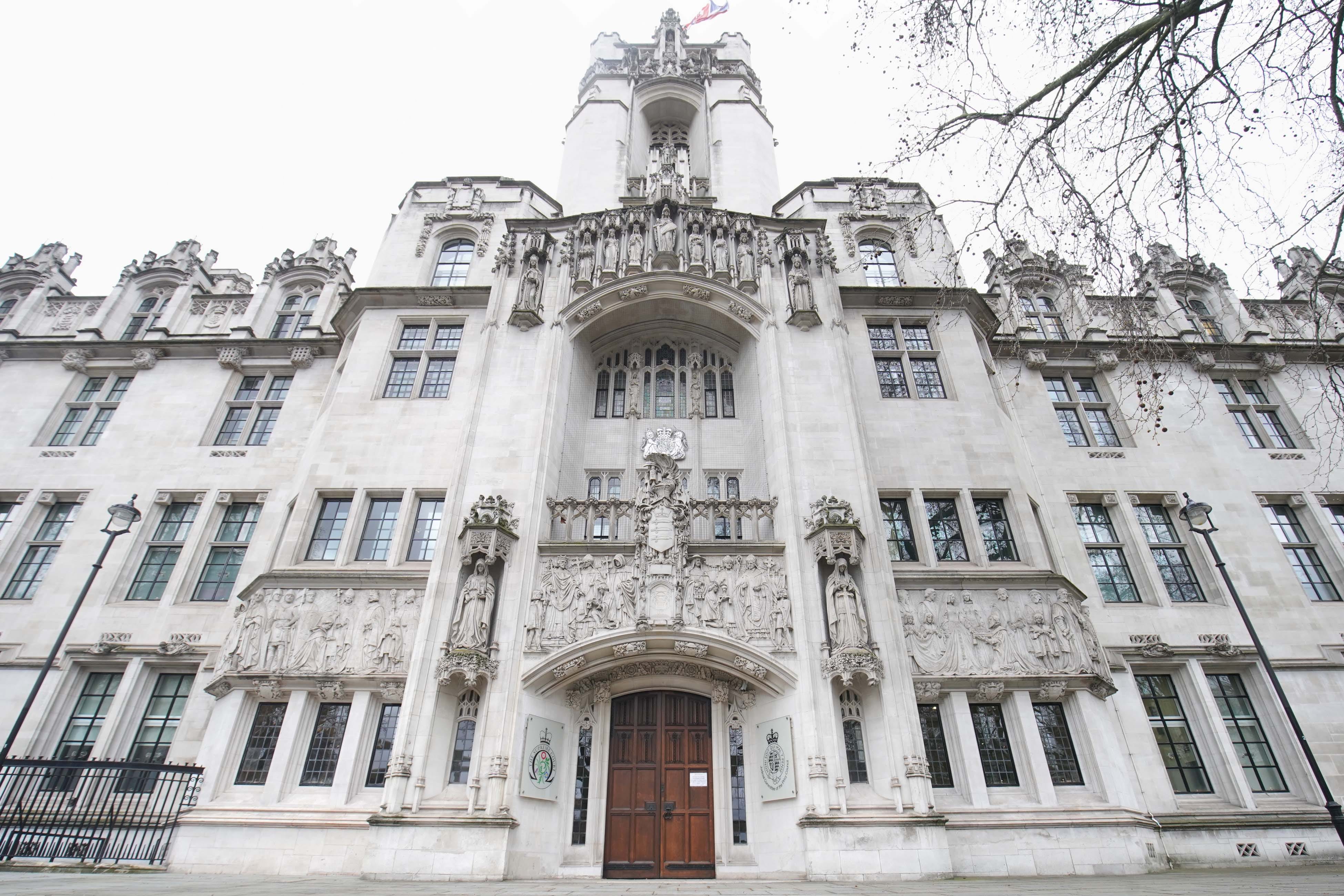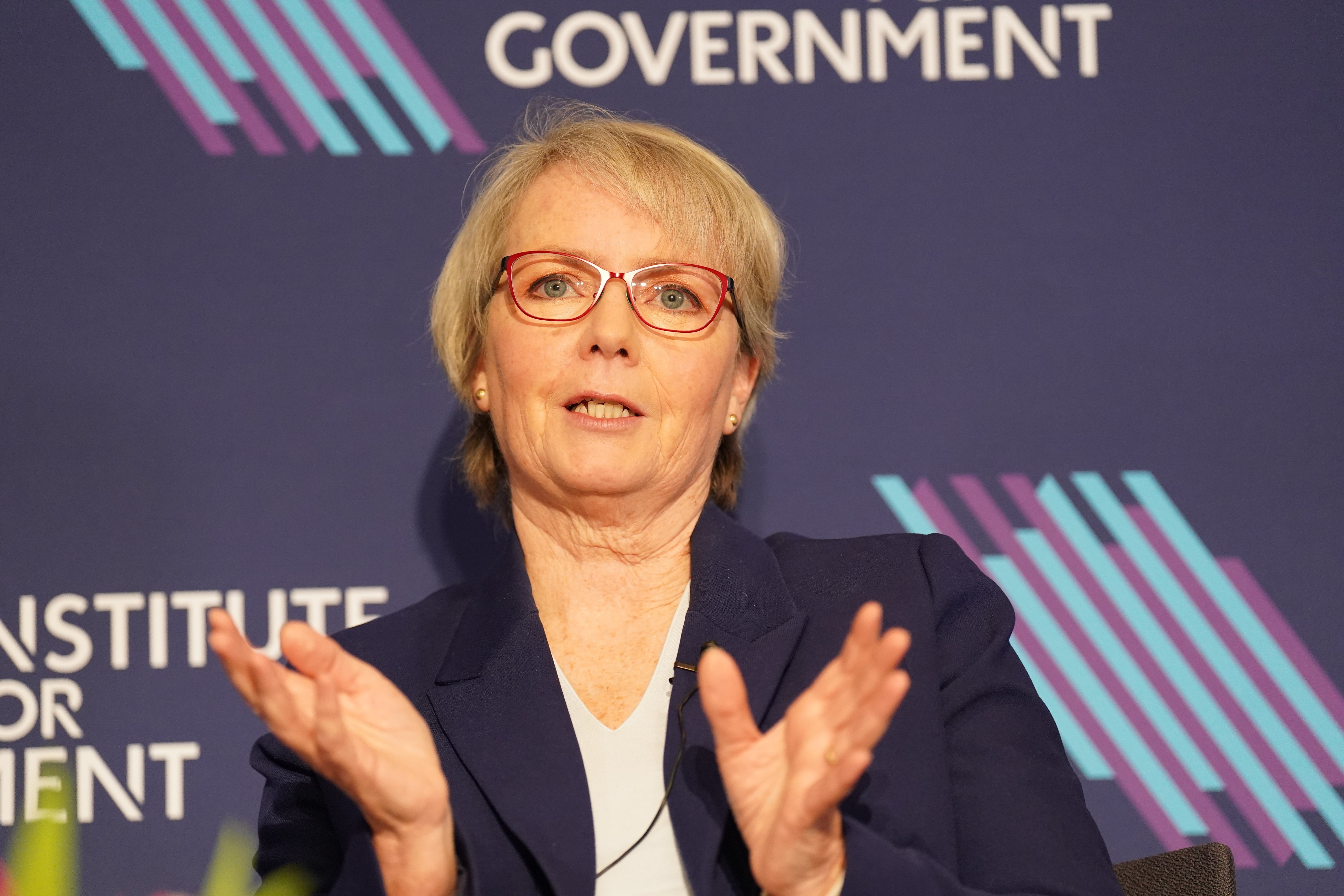
A police force has announced that male officers will begin performing searches of trans women following Wednesday’s Supreme Court ruling on the definition of sex.
The British Transport Police (BTP) says it has adopted a new “interim position” which will mean trans people held in custody will be searched by an officer in line with their birth sex.
The force has become one of the first to announce a change of policy in light of the divisive court ruling. It means that trans women in custody will be searched by male officers, while officers who are trans women will no longer be able to search female detainees.
The ruling that the terms woman and sex in the 2010 Equality Act "refer to a biological woman and biological sex" means transgender women with a gender recognition certificate (GRC) can be excluded from single-sex spaces if "proportionate", the Supreme Court said.

The BTP’s public confirmation of a policy change came as the head of Britain's equalities watchdog said Wednesday's ruling means trans women cannot use single-sex female toilets or changing rooms or compete in women's sports.
Equality and Human Rights Commission (EHRC) chairwoman Baroness Kishwer Falkner said the ruling by the UK's highest court was "enormously consequential", as she vowed to pursue organisations which do not update their policies.
Baroness Falkner said organisations should be “taking care” to look at the “very readable judgment” to “understand that it does bring clarity, helps them decide what they should do.”
A spokesperson for BTP said: “Under previous policy, we had advised that someone with a Gender Recognition Certificate (GRC) may be searched in accordance with their acquired sex, however, as an interim position while we digest yesterday's judgment, we have advised our officers that any same-sex searches in custody are to be undertaken in accordance with the biological birth sex of the detainee.
“We are in the process of reviewing the implications of the ruling and will consider any necessary updates to our policies and practices in line with the law and national guidance.”

On other issues such as toilets, changing rooms and sports, Baroness Falkner echoed the Government in saying the ruling had brought "clarity" to providers on their duties under equality law around single-sex spaces.
Asked if it was now simple that trans women cannot take part in women's sport, she told BBC Radio 4's Today programme: “Yes, it is.”
On changing rooms and toilets, Baroness Falkner said: “Single-sex services like changing rooms must be based on biological sex.”
She said there is no law against organisations providing a third space such as unisex toilets and suggested trans rights organisations “should be using their powers of advocacy to ask for those third spaces.”
The commission is expecting to lay an updated statutory code of practice before Parliament by the summer, and has said it is working “at pace to incorporate the implications of this judgment” into the code for public bodies setting out their duties under the Equality Act.
Baroness Falkner said the commission evaluates when the law is not followed by organisations and can speak to those bodies, or “use enforcement, compliance tools or whatever, we will be continuing to do that.”
Care minister Karin Smyth told BBC Breakfast the “NHS will obviously be complying” along with “very other public body”.

The Bristol MP said she hopes the ruling will draw a line under arguments over gender recognition, but accepted more “homework” needed to be done on what it will mean in practice.
Meanwhile, education unions have urged the Government to provide clear guidance to schools and colleges on how to interpret the law in regard to children questioning their gender, amid concerns from teachers about the implications for their pupils following the ruling.
The Supreme Court decision was hailed as a victory by women's rights campaigners, but LGBT charity Stonewall described the judgment as "incredibly worrying for the trans community".
Stonewall CEO, Simon Blake OBE said: “It’s important to be reminded the Court strongly and clearly re-affirmed the Equality Act protects all trans people against discrimination, based on Gender Reassignment, and will continue to do so.
“Stonewall will continue its work with the Government and parliamentarians to achieve equal rights under the law for LGBTQ+ people,” he added.
Baroness Falkner said while the ruling is a “victory for common sense”, this is only the case “if you recognise that trans people exist”.
“They have rights, and their rights must be respected - then it becomes a victory for common sense,” she said, adding: “We stand here to defend trans people as much as we do anyone else. So I want to make that very clear.”
Picking a team from bars to beam and hoping for 10s: Fantasy leagues in gymnastics are a thing
NHS to be pursued if policies on single-sex wards don’t change, warns watchdog
Patients on common blood pressure drug urged to check pack amid labelling error
King jokes ‘it’s all mirrors’ with wellwisher after Maundy service
Woman caught in underwater vortex while swimming off coast
Easter travel disruption warning with hundreds of closures planned - traffic live







